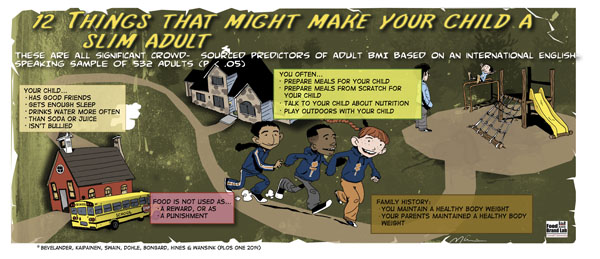Worldwide, there are at least 44 million people living with Alzheimer’s and other dementias. Everyone who has a brain is at risk to develop Alzheimer’s—but everyone can help to fight it.
Now is the time to get involved. Together we can end Alzheimer’s
Health News

© Istockphoto
In a large population-based cohort study, researchers have found a link between poor cardiovascular fitness and low cognitive performance at age 18 and the later onset of dementia. The study’s lead researcher was Jenny Nyberg, Ph.D., of Sweden’s University of Gothenburg. Results appear in the new issue of Brain.
The study included more than 1 million Swedish men. At age 18, they underwent mental and physical exams as part of their military conscription. These men were then followed up for up to 42 years to see which ones developed early-onset dementia. The researchers then used the data to see whether there was an association between cardiovascular and cognitive fitness at age 18 and early-onset dementia.
The researchers found that such an association did exist. Both low cardiovascular and cognitive performance in early adulthood were associated with an increased risk for future early-onset dementia, but the highest risks were observed for individuals who had poor performance in both areas.
“This technically well-executed study is among the first to link cardiovascular fitness and cognitive functioning at a young age with early-onset dementia,” Kostas Lyketsos, M.D., chair of psychiatry at Johns Hopkins Bayview Medical Center and a geriatric psychiatrist, told Psychiatric News. “As the study is observational, high confidence in a causal link is not possible. However, the findings are consistent with other research linking cardiovascular health or disease and cognitive functioning or reserve with late-onset dementia decades later. Much research is needed to translate this finding into a specifically actionable preventative intervention. For now, active efforts to maintain cardiovascular and cognitive fitness through the lifespan, starting at a young age, offer some promise of preventing or delaying the onset of dementia at mid- or later life.”
Another large study identified still other risk factors for early-onset dementia. See the Psychiatric News article, “Early-Onset Dementia Linked to Alcohol Abuse, Other Factors.” In addition, extensive information about dementia can be found in American Psychiatric Publishing’s Clinical Manual of Alzheimer Disease and Other Dementias.
Source: American Psychiatric Association
Remember that slim kid in school – the one with the cook-from-scratch mom? He’s likely one of the fittest dudes at your high school reunion according to new research from Cornell University, published online in the journal PLOS ONE.
“One of the best safeguards against your children becoming overweight as adults is how involved you are with their lives,” says Cornell’s Brian Wansink, professor in the Charles H. Dyson School of Applied Economics and Management and a leader of the team that used crowdsourcing to ask 532 adults, “Which childhood experiences and behaviors might predict slimness or obesity in adulthood?”
“What’s particularly amazing is how people have identified these childhood predictors of obesity that experts never thought about,” says Kirsten E. Bevelander, another report author, from The Netherlands’ Radboud University Behavioural Science Institute. “Things like bullying, number of friends and how often parents play outdoors with their children are significantly predictive of how much a child will weigh as an adult.”
“Playing with your children, talking about nutrition and simply spending time with them will make it more likely that your child becomes a slim adult,” adds Wansink, director of the Cornell Food and Brand Lab. “The bottom line for parents is: Spend a lot of time with your kids – it almost doesn’t matter what (activity) you do with them – just stay in their young lives.”
The study began by recruiting participants from reddit.com, the user-generated content news site, with notices posted on reddit sections for dieting, weight loss and parenting.
Each participant offered what they believed to be the best predictor of what a child would weigh as an adult – home environment, psychosocial well-being, lifestyle, family history – and submitted the predictor in the form of a question. Besides supplying his or her height, weight and age, participants answered questions generated by other participants about their own childhood behaviors and conditions.
The researchers said their project was among the first to use crowd-sourced information to identify new predictors that may, after further study, be useful in understanding and reducing obesity.
In the paper, the researchers encourage parents to create a “nurturing and healthy home environment and lifestyle for children that includes meals made from scratch, healthy eating conversations, plenty of sleep, outdoor exercise and supporting healthy friendships with peers.”
ᔥ Cornell University

istockphoto
According to a new study in the Journal of Consumer Research, consumers shopping for more than one person tend to pass on “guaranteed hits” in lieu of getting something unique for each person on their list.
“Having multiple recipients in mind not only means that more gifts are needed, but it may change what shoppers focus on when making gift selections,” write authors Mary Steffel (University of Cincinnati) and Robyn A. LeBoeuf (University of Florida). “Our research indicates that shoppers selecting gifts for more than one person at a time may focus on getting different gifts for each recipient rather than on simply getting what each would like best.”
This behavior is what the researchers term “overindividuation,” or the tendency for shoppers to select a variety of gifts even when they know the recipients won’t be comparing gifts. Ironically, this means that the more shoppers try to be thoughtful, the more likely they are to pass up gifts that would be better liked in favor of individuated gifts.
Consider someone giving a magazine subscription to two friends, both of whom are avid sports fans. Instead of getting both friends a sports magazine, the giver might select a technology magazine for the first friend and a travel magazine for the second, even though both friends might have preferred a sports magazine and even though the giver might have given a sports magazine to either friend if he or she were the only recipient.
In six experiments, the researchers asked shoppers to choose gifts for one or more person. In all of the studies, one gift item was pre-tested to be more appealing than the other available gift items. When shopping for one recipient, shoppers tended to choose the most appealing gift. However, when shopping for multiple recipients, shoppers tended to pass up the more appealing gift in favor of getting different gifts for each person.
“To help consumers from losing sight of what gifts people would most appreciate, we encourage gift givers to think about the type of gifts the recipient would most likely pick for themselves,” the authors conclude.
ᔥMary Steffel and Robyn A. LeBoeuf. “Overindividuation in Gift Giving: Shopping for Multiple Recipients Leads Givers to Choose Unique but Less Preferred Gifts.” Journal of Consumer Research: April 2014. For more information, contact Mary Steffel (mary.steffel@uc.edu) or visit http://ejcr.org/. via Sciencenewsline

